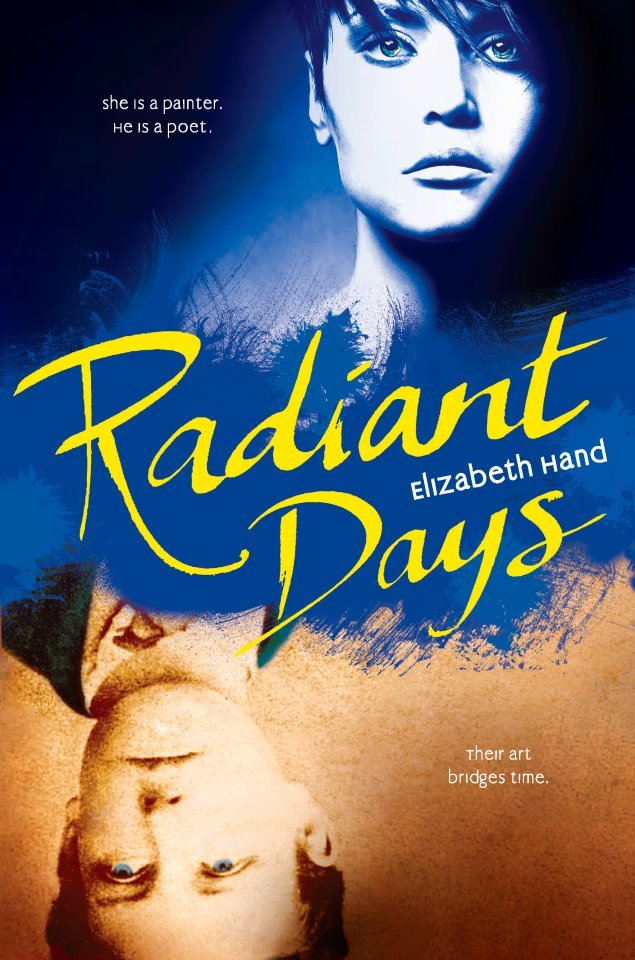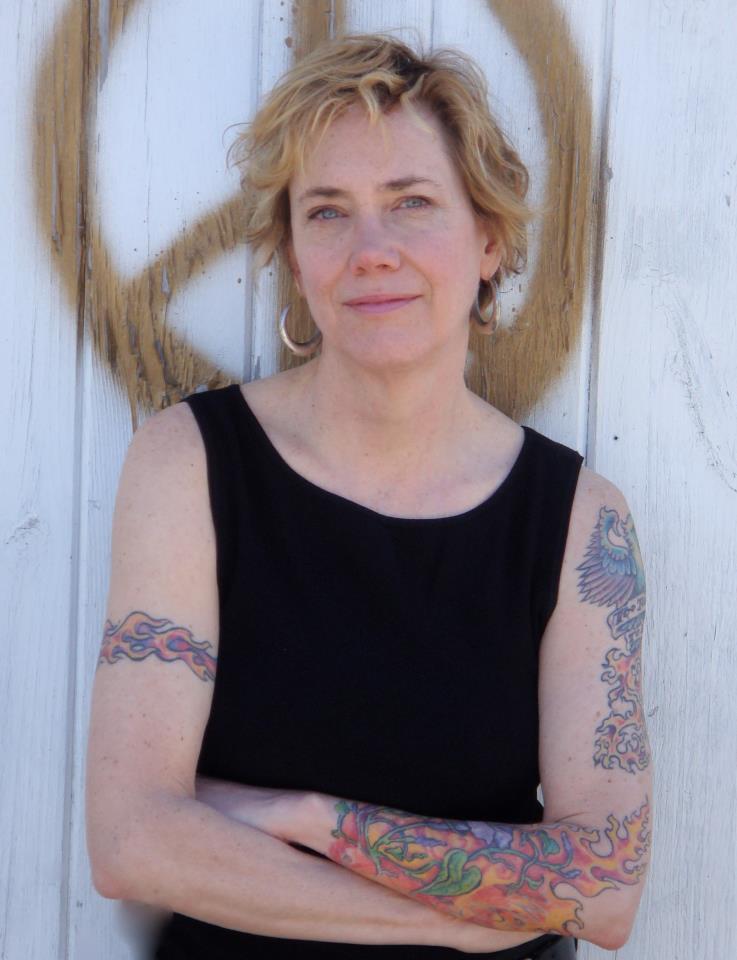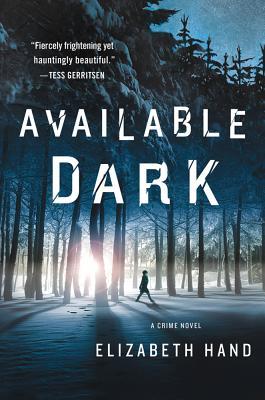Elizabeth Hand may be the most widely acclaimed Maine novelist you’ve never heard of. Both The New York Times and the Washington Post have honored her with “Notable Book” of the year selections.
As a literary stylist and storyteller, she has won top honors in every genre in which she has written, including the Nebula Award in science fiction, the World Fantasy Award, the International Horror Guild Award and the Shirley Jackson Award for literature of psychological suspense, among others. She has large followings in major U.S. metropolitan markets. But not so much so in Maine.
That may soon change. Hand simultaneously has two new books out. “Available Dark” is a sequel to her award-winning “Generation Loss.” But of special note is “Radiant Days,” her first book purposefully written for the young adult market. It’s a lyrical prism that reveals the magic and torment of two young people possessed by the heat of their art — and their drive to push its boundaries.
It targets the upper range of the young adult market, but has cross-over appeal for readers of all ages and genres.
The story opens with Merle, an immensely talented teenage artist who leaves her hard-luck family in “Nowhere, Virginia” to attend art school in Washington, D.C. On a trip to New York, she becomes enchanted with graffiti art.
Back in D.C., after all her belongings are stolen and she’s cast out on the streets, she encounters an aging, homeless street musician who encourages her radiant foray into graffiti. He also changes her life, opening a portal to 1870s France that brings Arthur Rimbaud, the boy poet, into her life. (Rimbaud profoundly impacted modern poetry before he turned 20.) Merle and Arthur are “twinned” by fates of family and their passions for art, “completing” each other as muses for one another’s work.
Hand recently spoke about her work, the young adult market and her ties to Maine.
Q: Did you encounter anything different or challenging in writing “Radiant Days” for the YA (young adult) market?
A: I worked on it over seven or eight years. I had difficulty relaxing and writing the way I write my other novels. I rewrote and rewrote. The main thing was getting Merle’s voice right. Once I finally grasped it, it was much easier.
Q: The plotting in “Radiant Days” seems leaner and tighter than some of your earlier books.
A: Plotting has never been my forte. To be honest, it doesn’t interest me much. I know you need it, but I feel strongly that everything should be dictated by character. I try to come up with characters I trust and then let them go. But I have gotten better at plotting with each book.
Q: Merle has kinship with female protagonists in your other books. She has spunk. She’s edgy. She’s not constrained by social convention — not to mention being fearless. What’s your creative instinct for this?
A: There is an autobiographical element to it, which is true of many writers. Not that I see myself as particularly strong. But I had a sense very early of what I wanted to be.
Merle comes from a poor, dysfunctional Appalachian family. But she has the vision; she has her eye on the prize.
Young women and teenage girls are often very strong. But in the 1960s when I was growing up, stories about girls were about how to get the boy. We don’t see that much anymore. It is a great trend in publishing.
We’re in a “golden age” of young adult literature.
Q: You seem fascinated with the notion of “twins” — one’s other self, that which completes or offsets you. Why?
A: It does reoccur again and again in my work. It is one of those things that’s interesting to me. I don’t sit around wishing I was a twin, but in fiction it’s an interesting construct.
As a teenager, I wanted to go into theater. I was fascinated with “Twelfth Night.” That was what probably sparked the interest in twins. That’s what “Illyria” is all about. It shows up also in “Winterlong.”
Q: There’s a wonderful line that Ted Kampfert, the homeless street musician, says to Merle: “Magic isn’t something you do. It’s something you make.” Is this an essence of writing for you?
A: I do believe that magic is something you make. As adults, we’re aware that there isn’t real magic in the world, but we still have a need and desire for there to be. We’re looking for that transcendent experience. For a lot of people it’s through travel, or sex, or food. For me, the most important and successful way to find it is through art.
Looking at someone else’s art, or reading books. You don’t have to be listening to Beethoven. It can be graffiti. Something that takes us outside of ourselves. Art is the closest we come to having magic in our lives.
When I wrote that line, I said: Yes!
Q: The idea of the muse is important to you.
A: It might be that “twin thing” again. The notion of having another who can embody one’s concept of art, no matter what. But it’s also the whole notion of inspiration. That was what the Muses were supposed to be about. But they can be about destruction, too. The Maenads followed Dionysus, tearing people apart. The Maenads and the Muses — I tend to write about them a lot. Cass Neary (of “Generation Loss” and “Available Dark”) is an avenging angel. Larkin Meade in “Mortal Love” is a physical embodiment of them.
Q: Mythology is often a crucial element in your stories. Why is that?
A: Myths and legends link the post-modern world with the ancient world, with its numinous level. They have the power when we set them in the current day to give imminence to those gods existing here.
I’m not a religious believer of any sort, but I can see how it would certainly affect one’s world view, probably in a positive way.
Myths go back into the darkness of time until we lose track of them. That really interests me. I tend to find Norse mythology fascinating. I trend toward the dark stuff. The Norse myths end with the world ending. It’s antithetical to the Christian notion that the world will end with a benign afterlife.
Q: What are your ties to Maine?
A: We used to come up here (from Yonkers) on vacation, going camping. Later, we rented a house in the Long Lakes region. In college, I had a friend whose family had a place on Vinalhaven. In 1988, I decided it was time to fish or cut bait as a writer. I bought my place here in Lincolnville in 1990. I spend part of the year in London, but I love Maine. It’s where I do my best writing.
Q: What’s in the works now? Will you write another YA novel?
A: I’m working on a couple of books. One is a young adult novel. When I finish that, I want to go back and continue with Cass Neary, the protagonist in “Generation Loss” and “Available Dark.”
Frank O Smith is a Maine writer, ghostwriter, and writing coach. He can be reached at:
fosmith@thewritinggroup.com
Send questions/comments to the editors.





Success. Please wait for the page to reload. If the page does not reload within 5 seconds, please refresh the page.
Enter your email and password to access comments.
Hi, to comment on stories you must . This profile is in addition to your subscription and website login.
Already have a commenting profile? .
Invalid username/password.
Please check your email to confirm and complete your registration.
Only subscribers are eligible to post comments. Please subscribe or login first for digital access. Here’s why.
Use the form below to reset your password. When you've submitted your account email, we will send an email with a reset code.